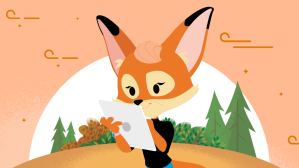Why is 150 the Most Magical Number for Marketers?



Did you know that 150 is commonly referred to as Dunbar's Number? This blog delves into why 150 is a significant number for marketers.
Salesforce Authors
I am in the middle of a social experiment on twitter that has resulted in quite a few heated debates. Up until last week, I was following almost 3,000 people – many of whom I’ve met personally at conferences or virtually via twitter chats. The problem I was finding was that I was getting increasingly frustrated at being unable to keep up with the sheer volume of conversations with my followers. (I worked out that I would need to swipe my newsfeed 14,400 times a day just to keep up). Challenged by one of my friends, I decided to un-follow everyone and start again – but this time I was only going to follow 150 people.
Let me explain why 150 is a very significant number for marketers.
Commonly referred to as Dunbar’s Number, 150 has been proven to be the maximum amount of relationships that any one person can sustain. The original research was done back in the 1990’s by British anthropologist Robin Dunbar who found a correlation between brain size and the average social group size. By using the average human brain size and extrapolating from the results of primates, he proposed that humans can only comfortably maintain 150 stable relationships. He then turned his attention to humans to see if his assumptions were correct. They were.
As it turns out, 150 is also the maximum size of farming communities before they split, or need to be governed and policed. 150 employees is also the optimum size of an organisation’s workforce before it needs to split into departments, and historically it is the basic unit size of Roman armies. Basically, Dunbar argued that 150 is the perfect size for a community.
Writing about communities in his book A Different Drum, M. Scott Peck explained that a true community is one where each member loves and supports each other, helping make big decisions together, for the good of the group, where no one person is in charge. When you consider that a community is a group of people who love and support each other, coming together in times of need and celebrating together on happy occasions, it makes you wonder if the communities that marketers think they are building are really communities at all.
The communities that some marketers build are owned by brands. The marketing team is actually the one in control of the group, and any conversations/content shared between members is usually dictated by social and content teams. This is not a community. I have always liked marketer Chris Brogan’s description of a community:
The reason that I love the Salesforce Marketing Cloud is that it allows big companies to act small. Whether you have thousands of followers or millions of fans, the beauty of tools like Radian6 is that they allow brands to break down their vast numbers of fans, followers and subscribers into small manageable communities. Better to provide a highly personalized experience for 100 groups of 150, than blast marketing messages to mailing lists of 15,000. Sony PlayStation is doing this beautifully at the moment by using the Marketing Cloud to understand the needs of their 120m users on a daily basis.
When I hear that many executives in 2015 feel overwhelmed and under-prepared for the challenges that they face, it’s not surprising if you are faced with millions of mentions of your brand each day and thousands of customer journeys to successfully navigate. But if you can use technology to filter out the noise, and then segment those huge audiences into engaged communities of 150 or so, your job starts to feel a whole lot easier.
I love Brian Chesky’s quote, but wouldn’t it be even better if your marketing and customer care were that good that all 1 million people loved you?
There’s never been a more exciting time to be a marketer…





















